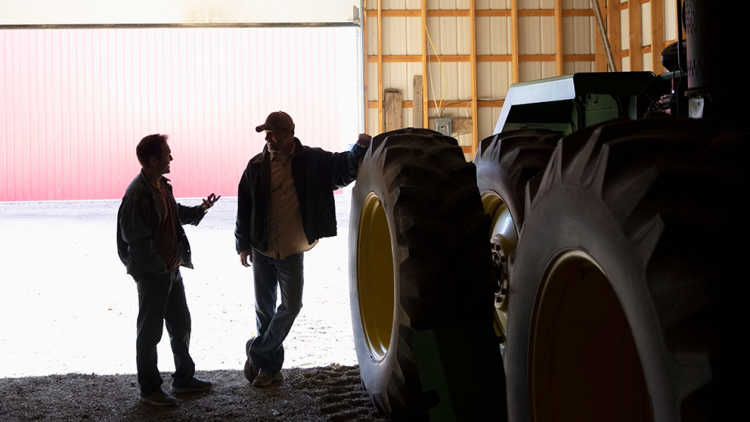How to make negotiations a win-win situation

When negotiating the best price for anything – land, machinery and inputs among them – consider the long-term implications of the purchase or sale, as well as the connections with the buyer or seller.
That’s advice from experts like professional negotiator Anna De Paoli of Calgary, and leading Saskatchewan farm realtor Tim Hammond.
De Paoli says the long-term nature of farming makes negotiations in agriculture different than in many other sectors.
“Farmers are in it for the long haul,” De Paoli says. “That means they must be skilled negotiators to make sure both the price and the deal are right.”
Hammond agrees.
“We want people to be friends at the end of a negotiation,” Hammond says. “Often, the seller doesn’t leave the community. We don’t want those involved in the deal to have to avoid each other when they run into each other.”
Negotiating so everyone wins
Hammond says he and his team approach negotiations with a win-win mindset. In agriculture, the same realtor almost always — over 90% of the time — represents the buyer and the seller. That’s in sharp contrast to residential sales, where the same realtor looks after both parties only about 5% of the time.
That gives farm realtors a unique opportunity to get to know the buyers’ and the sellers’ motivation, which Hammond says is key to successful negotiation. It allows him and his team to do what he calls “grow the pie,” helping one party without hurting the other.
For example, on a farm sale, some amenities, like bins and buildings, are taxed higher than others upon disposal, such as land held in personal names. Hammond tries to negotiate a higher price for those lower-taxed amenities. The total package price is the same, so sellers get immediate tax relief with minimal or no cost to buyers.
“We help people establish a fair asking price, but see them sell it for less than market value for personal reasons, such as if they think it will help a neighbour’s son or daughter get started,” Hammond says. “We’ve seen it go the other way too, where a buyer is motivated to acquire his neighbour’s land and will pay a premium above top dollar to secure it for generations to come. After nearly 30 years in this business, I’m still surprised by some selling prices, which can be up to 10% below or above our estimation of market value.”
Research key for establishing a fair price
And how about negotiating a fair price?
Do your research and know what constitutes a fair deal prior to entering a negotiation.
De Paoli, says integrity is a hallmark of successful buyers and sellers. They do their research and know what constitutes a fair deal. For example, they can refer to comparable sales and perhaps other producer’s experiences, to determine something’s worth.
And they possess exceptional listening skills. They are willing to ask questions that help them get to know what’s important to the other party involved in the transaction, and they actively listen for their responses.
De Paoli says such preparation gives negotiators the confidence to have high expectations. They know their price is valid, and they don’t need to deviate from it. During bargaining, they won’t have to compromise on the price they seek.
Such validity is a touchstone when purchases become emotional, such as during family farm transitions. Discussions can get easily sidetracked when generations are immersed in highly charged family matters. Ultimately, she says, the goal is to negotiate a fair deal for all parties while maintaining family relationships.
De Paoli says farmers and ranchers are among the best negotiators she knows.
“Farmers are very aware of their operating costs,” she says. “In farming, you have just one shot a year at getting a crop in. There’s not a continuous revenue stream like some other businesses. And you could have two or three bad years in a row. You always need to have these considerations in mind and negotiate the best deal possible.”
Never stop practicing negotiating
So how do you become a successful negotiator? Practice in everyday life situations says De Paoli, and never stop.
For example, she recalls a client who was inconvenienced when checking into a hotel when her room wasn’t ready.
“Typically, she’d just sit in the lobby and wait, but she decided to ask the desk clerk for a bottle of wine for the trouble,” De Paoli says. “He said he couldn’t do a whole bottle, but he offered her a glass of wine instead. It was a small victory, but she got it because she negotiated.”
Bottom line
Approach negotiations with a win-win mindset, experts say. Do research and know a fair deal before entering a negotiation and put listening skills to work to know what’s important to the other party. Above all, practice negotiation skills every day in a variety of situations.
Article by: Owen Roberts

In this episode, we’ll learn more about this unique industry and Carol Poole's path to business success. How do alpacas survive a Prairie summer?
